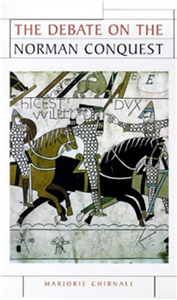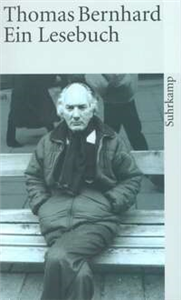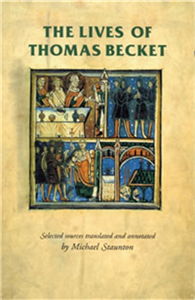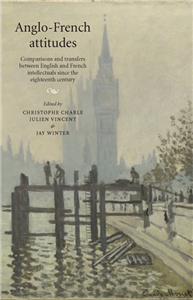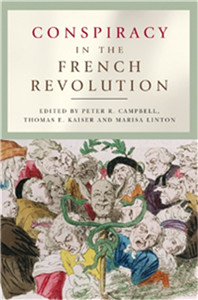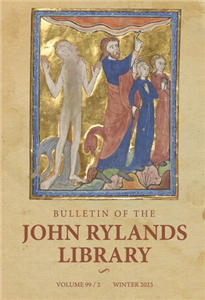Your Search Results
-
 Trusted Partner
Trusted Partner
-
华东师范大学出版社 East China Normal University Press
East China Normal University Press Ltd. (ECNUP), established in 1957, is one of the two oldest publishers in China specializing in education publicationsas well as the top-ranking publisher in education. ECNUP is the top publishing house in Shanghai, and ranks among China's top 100 presses.
View Rights Portal
-
Promoted ContentJanuary 2003
Industrial Painting and Powdercoating
Priniciples and Practices (Print-on-Demand)
by Roobol, Norman R.
-
Promoted ContentHumanities & Social SciencesNovember 2023
Rethinking Norman Italy
Studies in honour of Graham A. Loud
by Joanna Drell, Paul Oldfield
This volume on Norman Italy (southern Italy and Sicily, c. 1000-1200) honours and reflects the pioneering scholarship of Graham A. Loud. An international group of scholars reassesses and recasts the paradigm by which Norman Italy has been conventionally understood, addressing varied subjects across four key themes: historiographies, identities and communities, religion and Church, and conquest. The chapters revise and refine our understanding of Norman Italy in the eleventh and twelfth centuries, demonstrating that it was not just a parochial Norman or Mediterranean entity but also an integral player in the medieval mainstream.
-
 Trusted Partner
Literature & Literary StudiesJanuary 2013
Trusted Partner
Literature & Literary StudiesJanuary 2013The lives of Thomas Becket
by Michael Staunton
This collection tells the story of Thomas Becket's turbulent life, violent death and extraordinary posthumous acclaim in the words of his contemporaries. The only modern collection from the twelfth-century Lives of Thomas Becket in English and features all his major biographers, including many previously untranslated extracts. Providing both a valuable glimpse of the late twelfth-century world, and an insight into the minds of those who witnessed the events. By using contemporary sources, this book is the most accessible way to study this central episode in medieval history. Thomas Becket features prominently in most medieval core courses. This book allows the subject to be taught as never before, and is highly suitable as a set text.
-
 Trusted Partner
Humanities & Social SciencesJune 2021
Trusted Partner
Humanities & Social SciencesJune 2021Rethinking Norman Italy
by Joanna Drell, Paul Oldfield, C. E. Beneš
-
 Trusted Partner
May 1991
Trusted Partner
May 1991Intentionalität
Eine Abhandlung zur Philosophie des Geistes
by Harvey P. Gavagai, John R. Searle
Nach seinen sprachphilosophischen Arbeiten ('Sprechakte', stw 458; 'Ausdruck und Bedeutung', stw 349) hat John R. Searle mit 'Intentionalität' eine Untersuchung zu einem Kernstück der Philosophie des Geistes vorgelegt, die in einem engen thematischen Zusammenhang mit den früheren Arbeiten steht. Intentionalität ist nach Searles Auffassung die Basis sprachlicher Bedeutung. In seiner Theorie der Intentionalität geht es um die begrifflichen Eigenschaften intentionaler Zustände (auf die Frage nach ihrem ontologischen Status geht er ausführlicher ein in 'Geist, Hirn und Wissenschaft', stw 591). Zwei Aspekte stehen dabei im Vordergrund der Untersuchung: die Logik der Repräsentation und der Kausalität intentionaler Zustände. Doch Searle entwickelt in dieser Arbeit nicht nur eine Theorie der Intentionalität und des Zusammenhangs zwischen sprachlichem und geistigem Inhalt. In einem vornehmlich kritischen Teil setzt er sich ausführlich mit konkurrierenden Auffassungen aus dem Bereich der analytischen Philosophie auseinander, insbesondere mit derzeit sehr einflußreichen 'nicht-deskriptivistischen' Theorien des Bezugs, wie sie von S. Kripke, H. Putnam, K. Donnellan, T. Burge und D. Kaplan vertreten und angeregt wurden.
-
 Trusted Partner
Trusted Partner
-
 Trusted Partner
Humanities & Social SciencesJune 1999
Trusted Partner
Humanities & Social SciencesJune 1999The debate on the Norman Conquest
by Marjorie Chibnall, Roger Richardson
The debate on the Norman Conquest is still ongoing. Because of the great interest that has always been shown in the subject of conquest and its aftermath, interpretations have been numerous and conflicting; students bewildered by controversies may find this book a useful guide through the morass of literature. In the medieval period writers were still deeply involved in the legal and linguistic consequences of the Norman victory. Later the issues became direcly relevant to debates about constitutional rights; the theory of a "Norman yoke" provided first a call for revolution and, by the 19th century, a romantic vision of a lost Saxon paradise. When history became a subject for academic study controversies still raged round such subjects as Saxon versus Norman institutions. These have gradually been replaced in a broader social setting where there is more room for consensus. Interest has now moved to such subjects as peoples and races, frontier societies, women's studies and colonialism. Changing perspectives have shown the advantage of studying a period from the late 10th to the early 13th century rather than one beginning in 1066. ;
-
 Trusted Partner
May 1993
Trusted Partner
May 1993Thomas Bernhard. Ein Lesebuch
by Thomas Bernhard, Raimund Fellinger
Das vorliegende Lesebuch versteht sich als Vorschlag und Einladung zu einer Erkundung des Bernhardschen Schreibens, dessen begriffs- und geschichtenzerstörende Irritationskraft den Leser in seinen Sog zieht und ihn jene Haltung einnehmen läßt, die Thomas Bernhard als die seinem Werk angemessene beschrieben hat: »Man soll sich vorstellen, man ist im Theater, man macht mit der ersten Seite einen Vorhang auf, der Titel erscheint, totale Finsternis – langsam kommen aus dem Hintergrund, aus der Finsternis heraus, Wörter, die langsam zu Vorgängen äußerer und innerer Natur, gerade wegen ihrer Künstlichkeit besonders deutlich zu einer solchen werden.«
-
 Trusted Partner
Humanities & Social SciencesMarch 2017
Trusted Partner
Humanities & Social SciencesMarch 2017The French empire at War, 1940–1945
by Martin Thomas
The French empire at war draws on original research in France and Britain to investigate the history of the divided French empire - the Vichy and the Free French empires - during the Second World War. What emerges is a fascinating story. While it is clear that both the Vichy and Free French colonial authorities were only rarely masters of their own destiny during the war, preservation of limited imperial control served them both in different ways. The Vichy government exploited the empire in an effort to withstand German-Italian pressure for concessions in metropolitan France and it was key to its claim to be more than the mouthpiece of a defeated nation. For Free France too, the empire acquired a political and symbolic importance which far outweighed its material significance to the Gaullist war effort. As the war progressed, the Vichy empire lost ground to that of the Free French, something which has often been attributed to the attraction of the Gaullist mystique and the spirit of resistance in the colonies. In this radical new interpretation, Thomas argues that it was neither of these. The course of the war itself, and the initiatives of the major combatant powers, played the greatest part in the rise of the Gaullist empire and the demise of Vichy colonial control.
-
 Trusted Partner
Literature & Literary StudiesMarch 2021
Trusted Partner
Literature & Literary StudiesMarch 2021Thomas Heywood and the classical tradition
by Tania Demetriou, Janice Valls-Russell
-
 Trusted Partner
Trusted Partner
-
 Trusted Partner
Literature & Literary StudiesJanuary 2026
Trusted Partner
Literature & Literary StudiesJanuary 2026Thomas Nashe and literary performance
by Chloe Kathleen Preedy, Rachel Willie
-
 Trusted Partner
December 2009
Trusted Partner
December 2009Der Briefwechsel Thomas Bernhard/Siegfried Unseld
by Thomas Bernhard, Siegfried Unseld, Raimund Fellinger, Martin Huber, Julia Ketterer
30 Jahre alt, ohne Resonanz auf seine bis dahin veröffentlichten drei Gedichtbände, vom eigenen überragenden schriftstellerischen Können allerdings überzeugt, schreibt Thomas Bernhard im Oktober 1961 an Siegfried Unseld: "Vor ein paar Tagen habe ich an Ihren Verlag ein Prosamanuskript geschickt. Ich kenne Sie nicht, nur ein paar Leute, die Sie kennen. Aber ich gehe den Alleingang." Obwohl der Suhrkamp Verlag das Manuskript ablehnte, gingen der Alleingänger und der Verleger seit dem Erscheinen von Bernhards erstem Roman "Frost" 1963 gemeinsam den Weg, der den Autor in die Weltliteratur führte. In den etwa 500 Briefen zwischen beiden entwickelt sich ein einzigartiges Zwei-Personen-Schauspiel: Mal ist es eine Tragödie, wenn etwa Bernhard die aus seinen Werken bekannten Schimpftiraden auf den Verleger losläßt, der seinerseits auf die Überzeugungskraft des Arguments setzt. Dann gibt Bernhard ein Kammerspiel mit Unseld als Held – 1973 schreibt er ihm: "mit grösster Aufmerksamkeit, mit allen Möglichkeiten, gehe ich gern mit Ihnen." 1984 agieren beide, bei der Beschlagnahme von "Holzfällen", als Kämpfer für die Literatur in einem von Dritten inszenierten Schurkenstück. Es dominiert das Beziehungsdrama: Der Autor stellt die für sein Werk und seine Person unabdingbaren Forderungen. Der Verleger seinerseits weiß, daß gerade bei Bernhard rücksichtslose Selbstbezogenheit notwendige Voraussetzung der Produktivität ist. Solch einen dramatischen Briefwechsel zwischen Autor und Verleger, in dem bei jeder Zeile alles auf dem Spiel steht, kennt das Publikum bislang nicht.
-
 Trusted Partner
Literature & Literary StudiesAugust 2001
Trusted Partner
Literature & Literary StudiesAugust 2001The lives of Thomas Becket
by Rosemary Horrox, Michael Staunton, Simon Maclean
This collection tells the story of Thomas Becket's turbulent life, violent death and extraordinary posthumous acclaim in the words of his contemporaries. The only modern collection from the twelfth-century Lives of Thomas Becket in English and features all his major biographers, including many previously untranslated extracts. Providing both a valuable glimpse of the late twelfth-century world, and an insight into the minds of those who witnessed the events. By using contemporary sources, this book is the most accessible way to study this central episode in medieval history. Thomas Becket features prominently in most medieval core courses. This book allows the subject to be taught as never before, and is highly suitable as a set text. ;
-
 Trusted Partner
Humanities & Social SciencesSeptember 2014
Trusted Partner
Humanities & Social SciencesSeptember 2014Anglo-French attitudes
Comparisons and transfers between English and French intellectuals since the eighteenth century
by Christophe Charle, Julien Vincent, Jay Winter
This collection of essays looks at cultural transfers and comparisons between English and French intellectuals. The contributions, which have been written by scholars from a variety of disciplines, address a broad range of issues, including the international circulation of economic, political and literary ideas, the translation and reception of authors in various contexts, and the contest for 'Englishness' or 'Frenchness' both at home and abroad. The Anglo-French relationship is used here as an entry into the conflicting demands that intellectual life should be trans-national and cosmopolitan, and that intellectuals should be the representatives of the national mind. The conversations, disputes and silences between English and French intellectuals were once believed to be at the centre of the international republic of letters. By the end of the nineteenth century, however, the rise of new cultural powers re-shaped Anglo-French intellectual attitudes. Anglo-French attitudes will be read by scholars working in the areas of cultural history, intellectual history, gender studies, the social history of intellectuals, history of science, and literature. ;
-
 Trusted Partner
Trusted Partner
-
 Trusted Partner
July 2001
Trusted Partner
July 2001SAP R/3
Das praktische Grundwissen
by Fink, Hans J; Hosie, Peter; Huning, Jens; Ladewig, Thomas
-
 Trusted Partner
Humanities & Social SciencesJune 2010
Trusted Partner
Humanities & Social SciencesJune 2010Conspiracy in the French Revolution
by Peter R. Campbell, Thomas Kaiser, Marisa Linton
Conspiratorial views of events abound even in our modern, rational world. Often such theories serve to explain the inexplicable. Sometimes they are developed for motives of political expediency: it is simpler to see political opponents as conspirators and terrorists, putting them into one convenient basket, than to seek to understand and disentangle the complex motivations of opponents. So it is not surprising to see that just when the French Revolution was creating the modern political world, a constant obsession with conspiracies lay at the heart of the revolutionary conception of politics. The book considers the nature and development of the conspiracy obsession from the end of the old regime to the Directory. Chapters focus on conspiracy and fears of conspiracy in the old regime; in the Constituent Assembly; by the king and Marie Antoinette; amongst the people of Paris; on attitudes towards the peasantry and conspiracy; on Jacobin politics of the Year II and the 'foreign plot'; on counter-revolutionary plots and imaginary plots; on Babeuf and the 'conspiracy of equals'; and finally on fear of conspiracy as an intellectual impasse in the revolutionary mentality. Inspired by recent debates, this book is a comprehensive survey of the nature of conspiracy in the French Revolution, with each chapter written by a leading historian on the question. Each chapter is an original contribution to the topic, written however to include the wider issues for the area concerned. There is an emphasis throughout on clarity and accessibility, making the volume suitable for a wide readership as well as undergraduates and advanced researchers ;
-
 Trusted Partner
Literature & Literary StudiesDecember 2023
Trusted Partner
Literature & Literary StudiesDecember 2023Bulletin of the John Rylands Library 99/2
by Stephen Mossman, Cordelia Warr
The John Rylands Library houses one of the finest collections of rare books, manuscripts and archives in the world. The collections span five millennia and cover a wide range of subjects, including art and archaeology; economic, social, political, religious and military history; literature, drama and music; science and medicine; theology and philosophy; travel and exploration. For over a century, the Bulletin of the John Rylands Library has published research that complements the Library's special collections. The editors invite the submission of articles in these fields and welcome discussion of in-progress projects.
-
 Trusted Partner
July 2006
Trusted Partner
July 2006Psychiatrie, Psychoanalyse und die neue Biologie des Geistes
by Eric R. Kandel, Judith L. Rapoport, Thomas R. Insel, Arnold M. Cooper, Donald F. Klein, Joseph LeDoux, Charles F. Zorumski, John M. Oldham, Gerhard Roth, Herbert Pardes, Michael Bischoff, Jürgen Schröder
Dem Nobelpreisträger Eric R. Kandel gebührt das Verdienst, das bis dahin gänzlich unerkundete Gebiet der Beziehungen zwischen Neurobiologie und Psychoanalyse erschlossen zu haben. Heute ist es eines der spannendsten und zugleich innovativsten Felder der Wissenschaften überhaupt. Eric R. Kandel, der, in Österreich geboren und aufgewachsen, in der Zeit des Nationalsozialismus in die Vereinigten Staaten emigrierte, hat fraglos diesem Wissenschaftszweig die maßgeblichen Impulse gegeben. Kaum ein anderer Bereich hat derart spektakuläre Forschungsergebnisse vorzuweisen, die zugleich unser Bild des Menschen revolutionieren, wie etwa die aufsehenerregende Entdeckung eines funktionellen Wandels einzelner Gehirnareale nach einer Psychotherapie. Die vorliegende Sammlung von Aufsätzen Eric R. Kandels lädt den Leser zu "einer der wichtigsten, bedeutsamsten und aufregendsten Forschungsreisen unserer Zeit ein" (Stuart C.Yudofsky): zu einer Erkundung der Funktionsweise des menschlichen Gehirns und der Möglichkeiten, durch die Psychoanalyse und die Psychiatrie auf diese Einfluß zu nehmen. Die leitende Idee ist dabei, daß ein Verständnis der biologischen Prozesse, die unser Lernen und Verhalten begleiten, auch entscheidend zu unserem Verständnis des Verhaltens und seiner Störungen beitragen kann. Der Band, den der Protagonist der deutschen Hirnforschungsdebatte Gerhard Roth einleitet und der mit einer sehr persönlichen Einführung Eric R. Kandels beginnt, bietet einen konzisen Überblick dieser Revolution der psychiatrischen Forschung.












